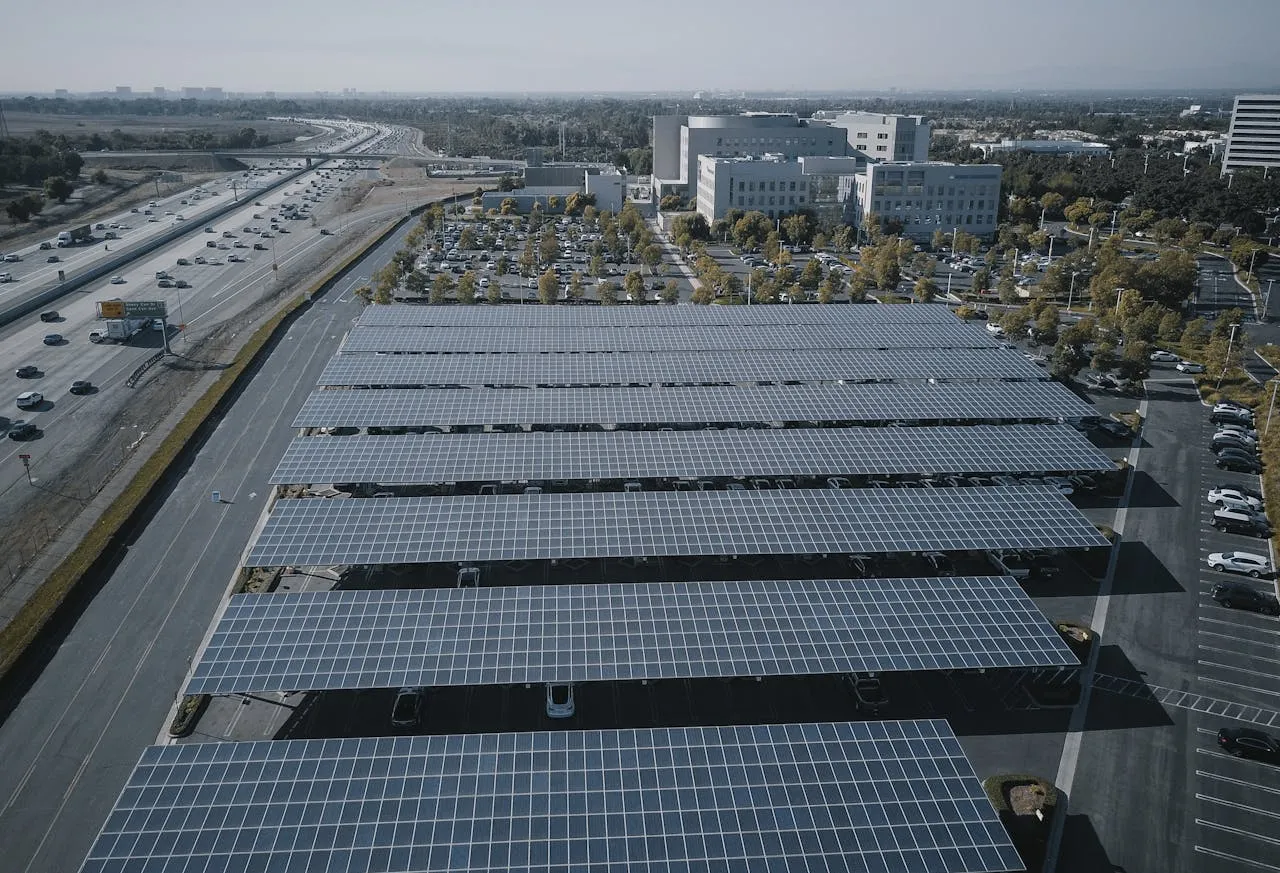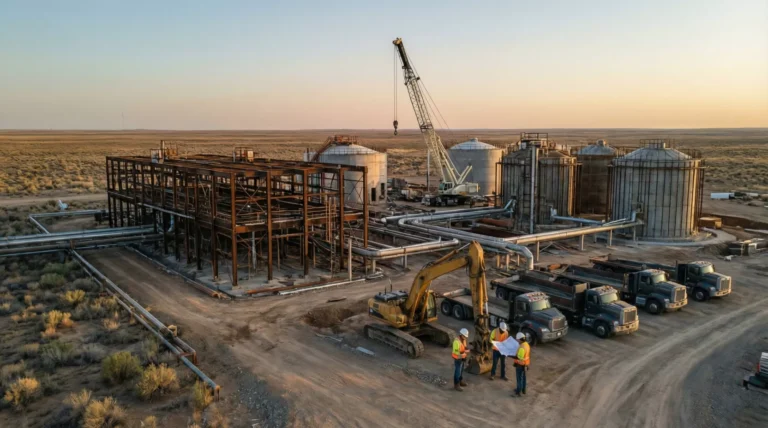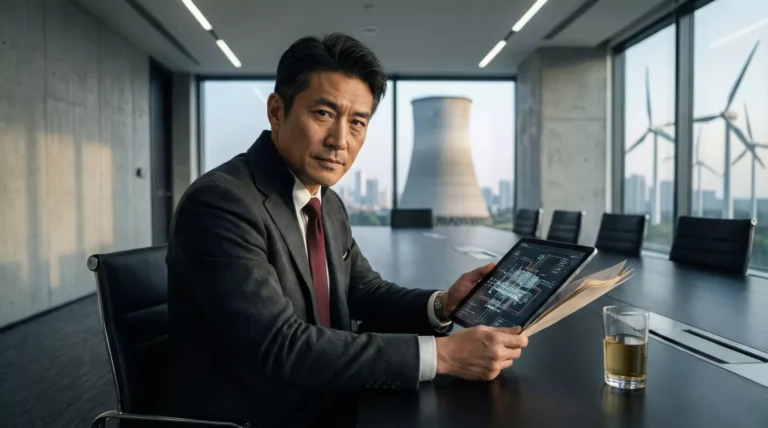
Trinity Energy and Costco Launch Innovative Off-Grid Microgrid System in Connecticut, Advancing Energy Independence for Large Enterprises
Trinity Energy (Trinity), a recognized leader in delivering turnkey, sustainable energy solutions, has announced the successful deployment of a fully modular, off-grid electrified energy system at Costco Wholesale’s (Costco) warehouse in Norwalk, Connecticut. This project represents a significant leap forward in how large-scale commercial operations can achieve energy independence, reduce environmental impact, and strengthen operational resilience.
The newly installed battery and solar microgrid transforms energy from a traditional operating expense into a high-value strategic asset. Specifically designed for Costco’s standalone tire center, the system allows the facility to operate entirely without relying on the traditional electrical grid. This milestone supports Costco’s long-standing corporate objectives around sustainability, carbon reduction, and operational continuity.
A Self-Sustaining Energy System Designed for Real-World Demands
The microgrid installation is capable of delivering up to 2 megawatt-hours (MWh) of clean energy per day, generated and stored entirely on-site. This capacity enables the tire center to meet all its daily energy requirements while maintaining a reserve for cloudy days or unexpected usage spikes. The system combines modular solar arrays with advanced battery storage technology, ensuring a continuous, reliable supply of electricity regardless of grid outages or peak-demand constraints.
Unlike conventional grid-connected facilities, this off-grid model offers complete autonomy. It is not subject to fluctuations in electricity prices, vulnerability during extreme weather events, or the delays associated with utility infrastructure upgrades. This independence is particularly important in the current climate, where grid instability and capacity limitations are increasingly affecting businesses across the U.S.
Shay Reed, Assistant General Merchandising Manager at Costco Wholesale, emphasized the significance of this approach:
“Energy should be treated as a necessary, finite resource as opposed to an expense or balance sheet charge. Our work with Trinity shows how energy can become a real asset that secures our operations, aligns with our sustainability goals, and reduces risk. This partnership is helping us lead the way toward greater energy independence.”
Meeting the Growing Challenge of Energy Demand
The timing of this project aligns with a global shift in how organizations think about power. Experts forecast that energy demand will climb dramatically over the next decade, driven by rapid advancements in artificial intelligence (AI) infrastructure, the growth of electric vehicle (EV) adoption, and electrification trends in transportation, manufacturing, and commercial sectors.
While demand is accelerating, utility-scale energy infrastructure is not keeping pace. Grid-tied systems often face bottlenecks such as limited capacity, long wait times for interconnection, and soaring upgrade costs. For enterprises that depend on uninterrupted power, these issues can translate into operational risks, lost revenue, and reduced competitiveness.
In this environment, modular and scalable off-grid systems are emerging as not just attractive but essential. Trinity’s solutions address this need head-on by enabling organizations to take control of their energy generation, storage, and usage—on their own terms.
Trinity’s Broader Strategy for Energy Autonomy
This deployment at Costco’s Norwalk location is part of Trinity’s larger strategic mission: to help enterprises “own their energy future.” The company’s model emphasizes speed-to-market, scalability, and flexibility, ensuring clients can deploy clean power solutions without being constrained by traditional utility limitations.
Trinity’s modular electrified structures combine several core components into a single integrated ecosystem:
- Solar generation for clean, renewable power production.
- Advanced battery storage systems for round-the-clock reliability.
- Inverters and distribution hardware to efficiently manage energy flow.
- Smart software and controls for real-time optimization and monitoring.
This all-in-one approach ensures seamless deployment and operation, whether for a single building, a corporate campus, or multiple remote sites.
Darin Leonard, President of Trinity Energy, described the company’s philosophy:
“This isn’t just about providing clean energy—it’s about redefining energy as a strategic asset. We’re enabling our partners to generate and manage their own energy with speed, autonomy, and ethical integrity.”
Tim Owen, Chief Operating Officer of Trinity Energy, highlighted the importance of technological integration:
“By integrating our advanced hardware and software into a single, cohesive solution, we guarantee customers an intelligent, proven, and rigorously tested renewable energy system designed to meet their current and future energy needs.”
A Model for Multiple Industries
While Costco’s tire center is the current showcase, Trinity’s modular systems are designed for deployment across a wide range of sectors. Potential applications include:
- Fleet depots that require overnight EV charging without stressing the grid.
- Hospitality facilities seeking reliable, sustainable power to improve guest experiences.
- Commercial office buildings aiming to reduce operating costs and achieve sustainability certifications.
- Multi-family residential complexes looking to offer residents clean, dependable energy and EV charging infrastructure.
In all these cases, the benefits extend beyond sustainability. Off-grid energy systems offer cost predictability, greater operational control, and resilience against disruptions that could otherwise halt operations.
A Step Toward a Decentralized Energy Future
The Norwalk deployment reflects a growing shift toward decentralized energy production—a model in which energy is generated closer to where it is consumed, reducing transmission losses and dependence on large, centralized grids.
For corporations like Costco, which operate hundreds of facilities across diverse geographies, the ability to replicate such systems at scale opens the door to a new level of operational resilience. With consistent system designs, enterprises can standardize deployment, reduce permitting complexity, and accelerate timelines for future installations.
Trinity’s scalable approach means that a solution installed for a single tire center today could be expanded to cover an entire warehouse or adapted for a completely different type of facility tomorrow.










